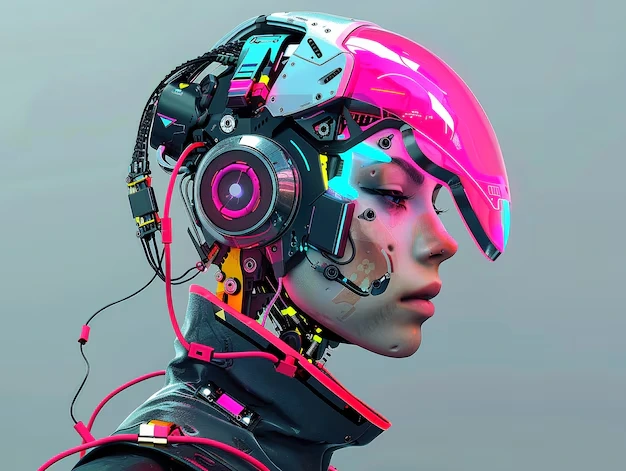Generative AI is the current hot topic. It is a domain in its nascent stages and developing with time.
But what is one aspect of gross neglect in the current generative AI applications?
This question is important. It allows us to redefine the boundaries of AI and ensure that our expectations are not unrealistic.
Generative AI may have had some startling successes. It can generate human-level text, art, and even human-level voice sounds.
Even then, there is a large percent gap between what is expected from AI and what it can actually do.
This article will discuss some of these gaps, with an emphasis on the basic limitations of current-generation AI applications. Let us now begin exploring the exciting world of AI, its affordances, and its restrictions.
What is Generative AI, and how does it work?
Generative AI Systems are defined as systems that reproduce data that is close to being identical to the input data provided by a user. This includes text, images, music, and so forth. Generative AI systems use machine intelligence techniques, including large neural network modeling, to replicate aspects of human thinking.
According to data, such systems always need more funding. They recognize a certain type of design and then, upon further instruction, create something entirely based on the prompts they have understood. DALL-E and GPT-like models are programs that produce very well-generated and coherent outputs.
These AI models have disrupted many practices. They help generate content, make design work faster, and improve problem-solving. However, a significant degree of excellence has substantial limitations that define what the models can do today. Know these limitations and their relevance to the appropriate exploitation of AI technologies.
The Hype vs. Reality of Generative AI
Generative AI arouses high hopes. People see machines that think, create, and invent as people do. Others predict a time when AI will be better than man in all respects.
But this is not true. In real life, today’s generative AI algorithms can create artificial output with creative characteristics but do not comprehend the purpose and meaning of such output. They are confined to the parameters of data fed to them. This reliance renders a comprehension of consciousness most raw. It also assists in setting realistic expectations and in the direction of the ethical development of AI.
The Core Limitation: Lack of Deep Understanding
There are deep-rooted AI limitations, one of which is a lack of understanding. Another example is generative AI, such as GPT-3, which writes so-called human texts, but even that level lacks understanding. It recognizes patterns and statistics but not meaning.
As a result, this lack of richness presents certain challenges. We are bound to make mistakes if we cannot perform satisfactorily in many complex situations due to AI’s incapacity to comprehend the context and intricate connections. It can generate appropriate words but needs to be more accurate with the concept or lose perspective.
Comprehension involves cognition that education systems do not offer. Such machines process data devoid of feelings or thoughts, which explains why we are still far from developing a truly intelligent entity: AI. AI may help improve performance, but its fundamental shortcomings highlight people’s interference.
Cognitive faculties and creative interpretation: Can AI develop ideas from its mind?
Generative AI is particularly regarded for its outputs, and it is overwhelmingly creative. However, AI does not possess authentic creativity and original thoughts. Even though it has none of the traits of creation, it is an ability to apply preexisting patterns to new generations without anything novel.
A real creative process involves developing new concepts and going further than the existing paradigm. AI creations are limited to a particular feed, and this is the care framework laid out by their creators. Such applications can hardly be described as novel ideas; they are nothing new. This illustrates precisely why AI, however useful in other respects, cannot replace human creativity.
AI Understanding Even the Most Complex Situations
In recent years, great strides have been made in artificial intelligence, with systems able to process vast sets of data in fractions of seconds. Even with this capability, the systems cannot process any form of context in the data being fed into them. AI is expected to do more than just say words or carry out tasks; there is great importance and need to understand emotions, feelings, and senses, and these are attributes in which AI is limited and fails to deliver.
A different category of language attribute also relates to how a context modifies the meaning of words and phrases. Because AI does not use human anecdotes and experiences, these subtleties cannot be handled with precision and care. Most brilliantly and distinctly, this gap hinders how AI understands and expectedly responds to most events.
AI Bias and Ethical Concerns Surrounding the Technology
While one may think that AI would be free of biases when introduced to different groups of people, it is apparent that these systems have an inherent bias associated with the data. There are sources and data available worldwide, and if an AI model is trained on these data sets, then there is a high chance it will replicate these biases, and the outcomes of such an AI model would be highly unfair.
Recent controversies have been especially problematic when AI has created some content and has no human control over it. Again, this is controversial and damaging because the content can contain unethical stereotypes and recommendations that should only be allowed with human insight. To eliminate biases from the outputs, management, and refinement of AI models that are ensured to be fair must be put in place.
The Challenge of Moral Judgments and Affective Intelligence
AI, particularly in its modern form, needs to be better equipped for tasks related to moral judgment. Such tasks imply comprehension of values or ethical propositions. Generative AI lacks this ability and does not have the means to resolve moral conflicts autonomously.
Moreover, emotional intelligence is far ahead of the available AI technology. However, AI cannot react to or even understand humans’ emotions. Because of this constraint, AI systems are likely to misinterpret emotional signals and interactions, which human beings have naturally with each other. For this reason, AI largely underperforms where emotions or normal human interaction are required.
Data Dependency and Quality
It is also true that the performance of Generative AI is proportional to the amount and quality of data available. Effed-up data will always result in even more AI-generated responses or outputs simply because AI cannot do anything outside of what it has been trained on. Given the amount of data that AI relies on, this particular aspect of AI systems severely curtails their power to be helpful in complex and dynamic real-life scenarios. It points out a significant deficiency in AI systems.
The Unpredictability and Explainability of AI Decisions
It is common for AI-specific decisions to be out of expected ranges in logic or reasoning and coordinately undefined. One such aspect of unpredictability is the complex neural networks that attribute an AI’s character. Users of trust and technology will be reluctant to embrace AI tools when they cannot fully articulate the reasons behind their decisions and operations.
The Environmental Impact of Training AI Models
Carbon, already in excess, is further increased by the large energy consumption due to the training of large AI models and the computational energy required to run sophisticated models on extensive datasets. Many such environmental changes are expected when AI development gets momentum, and scaling needs to be done for innovation and further developments to not negatively impact the ecosystem while simultaneously creating new developments in AI.
Overcoming Limitations: The Future of Generative AI
Regardless of the current setbacks, generative AI has great potential. This is great because it means that we are not only facing difficulties but actively seeking to overcome them. This should also help future generations create stronger context, creativity, and decision-making systems.
Researchers, technologists, and policymakers must work in tandem to shape the trajectory of AI. Focusing on ethics and improving the quality of the training data can improve AI development. Thanks to interdisciplinary research and collaboration, it is possible to think about the future of generative AI.
Here’s how: The applications become more solutions-oriented and can address the challenges posed by the present while breaking the boundaries of the future.
Conclusion: The Role of Human Oversight and Collaboration
Along with technology, human supervision is an important factor in AI development. Focusing on collaboration is important, as it enables trustworthy solutions that complement human skills and resolve ethical issues. The integration of generative AI is most promising, as cooperation and discussions uncover potential novel advances.
The Best IT Services and Digital Marketing Company. Wildnet Technologies is an award-winning company that delivers transformational growth to its clients.
Read More
- Leveraging AI for Enhanced Digital Marketing Campaigns
- AI Marketing Analytics’ Role in 2024
- Why is AI for SEO the Future of Search Marketing?
- AI-Driven Web Development: The Future of Web Development Services
- Can Generative AI Automate the Manual Process of Content Writing?
- AI-Powered Predictive Analytics in Digital Marketing: 2025 Trends
- Wildnet Technologies: Your One Stop Digital Partner
Faq
1. Can generative AI understand the deeper meaning behind a conversation?
No, generative AI does not truly understand the meaning or intent behind a conversation. It generates responses based on patterns in the data on which it has been trained. It cannot comprehend context in a human sense and may fail to grasp nuances like sarcasm, cultural references, or emotional undercurrents.
2. Why can AI generate realistic-sounding text but not understand it?
AI models like GPT are trained on vast amounts of text data, allowing them to generate contextually appropriate responses. However, this is purely based on statistical patterns, which we need help understanding. The AI predicts what words are likely to come next rather than “understanding” the meaning of the words in a human sense.
3. Can generative AI develop true empathy or emotional intelligence?
No, generative AI cannot develop true empathy. While it can simulate empathetic responses by mimicking patterns in data, it does not experience emotions or understand the complexities of human feelings. It can only follow programmed guidelines to generate responses that appear empathetic based on the language patterns it has encountered.
4. Will generative AI ever understand human context like humans?
It’s uncertain. While AI systems continue to improve in mimicking contextual understanding, proper comprehension, which involves subjective experience and emotional intelligence, is far beyond current AI capabilities. Developing this level of knowledge would require breakthroughs in both AI and neuroscience.
5. What are the risks of AI not understanding context?
The inability of AI to understand context can lead to problematic situations, such as generating inappropriate responses, making inaccurate recommendations, or failing to recognize sensitive issues. It could need to understand the tone of a conversation, leading to reactions that seem out of place or tone-deaf, which is especially risky in applications like healthcare, law, or customer support.







